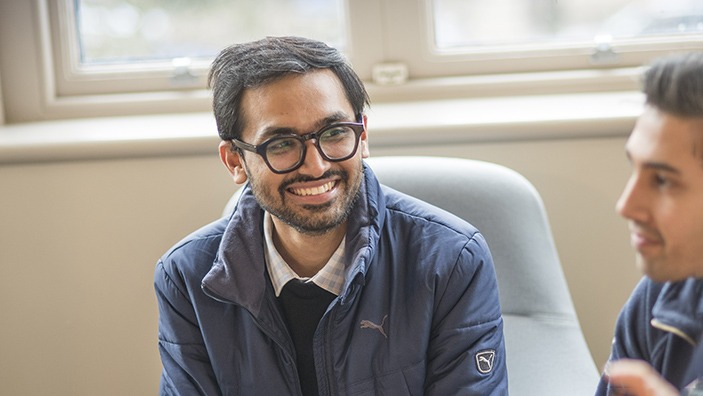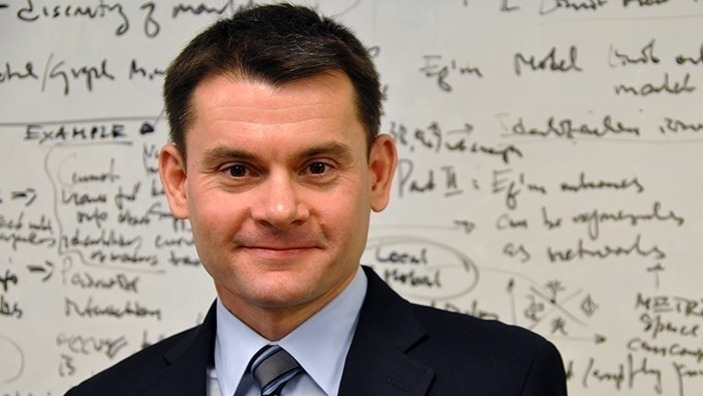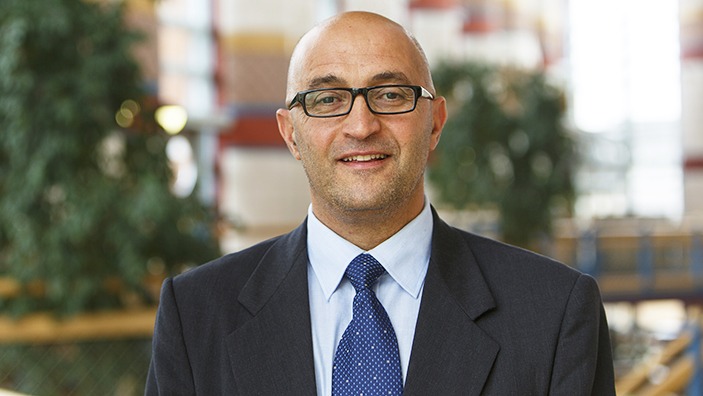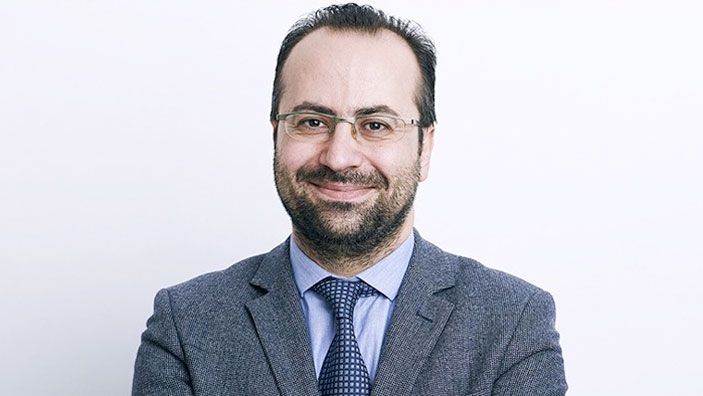Finance technology and artificial intelligence

In a rapidly evolving finance landscape, we are committed to staying at the forefront of financial education.
We have introduced and developed cutting-edge technical courses and recruited specialist practitioners to prepare you for the applications of new and emerging technologies across the financial services industry.
Students will cover the foundational concepts of machine learning, looking at concrete applications in trading, asset management, accounting and auditing, marketing and operations. Hands-on machine learning and applied machine learning for finance practitioners will provide you with an in-depth grasp and understanding of the main tools and concepts of AI and machine learning.
You will become part of our AI and Machine Learning community and will have access to free online tutorials, podcasts, advice, and community support.
Elective courses
Elective courses in this area include:
This course aims to provide students with an overview of quantitative techniques that are relevant to strategic asset allocation, whereby allocations are long-term, multi-asset, and institutional in nature.
The module is organised by areas of asset management, and each case will be accompanied by related quantitative techniques including financial, mathematical, and statistical basics.
The course provides a unique opportunity to understand how the theory of Finance, Statistics and Econometrics can be applied to making concrete and scientifically based investment decisions in the financial markets. The course will build a practical bridge between abstract concepts and everyday practice.
This course will provide a foundational knowledge of the blockchain technology and go over a number of its key applications, providing students with a solid understanding of what blockchain is, how it works, and how it can be applied in the financial services industry and beyond.
Sustainable finance and ESG

Cambridge University is uniquely positioned in the area of sustainability, with a large set of academics, departments and research centres across the School and University engaged on these topics.
We recognise the growing importance of ESG factors in the finance industry, so we have introduced and developed a range of topical courses focussed on sustainable finance and ESG related topics.
You will have several opportunities to not only learn about sustainability and apply your learning to real-life situations, through core courses, elective courses and project work, but to also learn from our experienced finance faculty and expert guest speakers from a variety of industries. For students who are interested in these topics, there are also opportunities to work with research centres such as The Circular Economy Centre and The Cambridge Institute for Sustainability Leadership.
Elective courses
Elective courses in this area include:
In this course students will learn about the difference between a traditional economic model and circular economic model and how to establish the business and financial case for adopting a circular economy model at all levels in the economy.
The purpose of this course is to introduce students to some of the important business models in the space of impact investing. The content will revolve around important applied concepts and models such as Islamic Finance, ESG and Sustainbale Finance. The course shall also cover the emerging trends important to these models.
This course begins with a question; what is the purpose of the finance industry? Unless we answer that question, it is unlikely we will build a purposeful industry to which professionals might wish to devote their careers.
If we do, we discover that finance is essential for the effective operations of the economy. But we also discover that, as currently constituted, the evidence suggests it is inefficient. The course investigates why this might be.
The aim of this course is to describe, understand and discuss current developments and trends in the area of sustainable finance, with a special focus on climate risk and ESG.
With the help of expert guest speakers, we shall look to distinguish between different types of sustainable finance products and relevant eligibility criteria. The course looks at how various ESG scoring and assessment approaches have been applied to real life case studies. It also explores how sustainable finance is evolving in emerging markets, with a special focus on Latin America.
Faculty and practitioners who specialise in these fields
Founding Director of the Cambridge Centre for Finance, Technology and Regulation (CCFTR)
PhD (University of Pennsylvania)
Director of the Cambridge Executive MBA Programme
Director of the Circular Economy Centre (CEC)
Director of the MPhil in Finance Programme
Co-Director of the Centre for Endowment Asset Management (CEAM)
David holds an honorary title from Cambridge Judge Business School.
External lecturers
Dr Alejandro Reynoso
Dr Alejandro Reynoso teaches the Machine Learning for Finance Practitioners programme on the MFin.
He holds a PhD in Economics from MIT and his career combines teaching, research, and practice. He has spent the last 25 years leading institutional change and financial innovation in Latin America.
His academic activity emphasises the creation of interactive materials for training financial professionals in the use of mathematics and computational methods in the areas of machine learning, decentralised finance, algorithmic trading, and investment banking.
He is a founding partner and Chairman of the Board of one of the first Blockchain-Investment-Banking advisory firms in Latin America, based in Peru, participating in projects encompassing real estate, reforestation, and professional sports.
Previously, he was the project leader of initiatives such as the Reform of the Pension System in Mexico, the creation of the Systemic Risk Management Unit at the Mexican Central Bank, the corporate reorganisation and IPO of the Mexican Stock Exchange, the implementation of the first ETFs in Colombia, Mexico and Peru in the Long-only, Inverse and Leveraged and Fixed Income segments; he led the establishment of the REIT Industry in Mexico.
He has worked in high-level executive positions for the Ministry of Finance of Mexico and the Mexican Central Bank, the Mexican Stock Exchange, Barclays Global Investors, Evercore Partners, and Grupo Televisa.
He founded and listed the first real estate internally managed REIT in Mexico, where he was a General Partner and Chairman of the Control Group. In 2021, this company merged with Skyway Equities, one of the largest real estate developers and operators in Latin America, where he now co-heads its Investment Banking Unit.
He has been awarded twice the Banamex National Prize of Economic Research in Mexico. He was a Visiting Scholar at the National Bureau of Economic Research in 2001, and since 2014 he has taught the following courses at Cambridge Judge Business School, University of Cambridge:
- Algorithmic Trading
- Mathematical Foundations of Fintech
- Machine Learning for Financial Practitioners
- Financial Innovation in Emerging Markets.
He has also taught at ITAM in Mexico for 16 years.
Read Dr Reynoso's article on AI’s impact on the finance industry
Research centres and initiatives
With a research focus on circular economy, circular business models and their application, as well as the policy and business contexts within which they operate, the Centre combines academic rigour alongside practitioner engagement, in line with the research strategy of Cambridge Judge Business School.
An impact-led institute within the University of Cambridge that activates leadership globally to transform economies for people, nature and climate.
The Cambridge Centre for Finance, Technology & Regulation serves as a hub for research, education and outreach on the impact of digital technologies on the financial services industry.
The Cambridge Centre for Alternative Finance studies alternative finance, including financial channels and instruments that emerge outside of the traditional financial system.
A unique partnership between 8 leading European business schools that helps present and future leaders combat the climate crisis facing the planet.
Related articles
As AI, big data, blockchain and other areas continue to grow apace, how is the Cambridge Master of Finance keeping up? We spoke to 2 MFin alumni to find out how the programme helped in these areas, and what impact it’s had on their careers.
Faculty news
Cambridge Judge takeaways from COP28
Three people associated with Cambridge Judge Business School – Professor Christopher Marquis, Alumni Council member Bob Hoogendoorn (MFin 2019), and Fellow David Pitt-Watson – share their thoughts about the event held in the UAE.
With ESG and sustainability taking on an increasingly important role in the finance industry, more and more opportunities are opening up in Sustainable Finance and beyond – so what’s it like to work in the field, and how can the MFin help prepare you for a career in it? We spoke to 2 alumni from the Cambridge MFin to find out.









